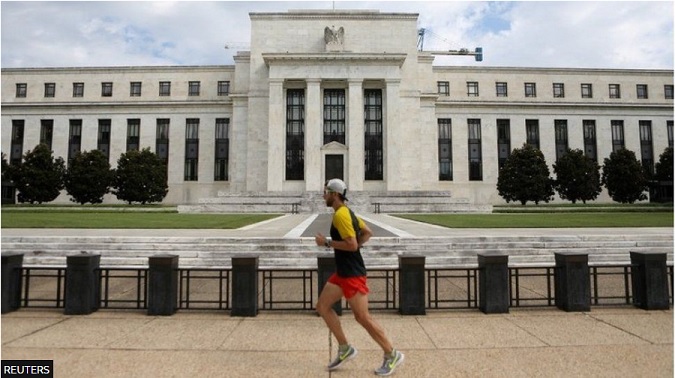
The US central bank has announced its biggest interest rate increase in more than two decades as it toughens its fight against fast rising prices.
The Federal Reserve said it was lifting its benchmark interest rate by half a percentage point, to a range of 0.75% to 1% after a smaller rise in March.
With US inflation at a 40-year high, further hikes are expected.
The push marks the latest effort to contain spiking costs being felt by households around the world.
India's central bank on Wednesday announced a surprise increase to its benchmark rate, while Australia's central bank recently enacted its first interest rate hike in more than a decade.
The Bank of England is also widely expected to raise rates on Thursday, which would be the fourth increase since December.
"Inflation is much too high and we understand the hardship it is causing," Federal Reserve chairman Jerome Powell said in a press conference in Washington on Wednesday.
"We are moving expeditiously to bring it back down."
By raising rates, banks will make it more expensive for people, businesses and governments to borrow.
They expect that to cool demand for goods and services, helping to ease price inflation.
But their actions also risk triggering a sharp economic slowdown, especially as new challenges emerge, such as the war in Ukraine and recent Covid shutdowns in China.
"It's a narrow path they have to walk," said economist Donald Kohn, who previously served on the Fed's rate-setting committee. "It's going to be a very difficult task."

